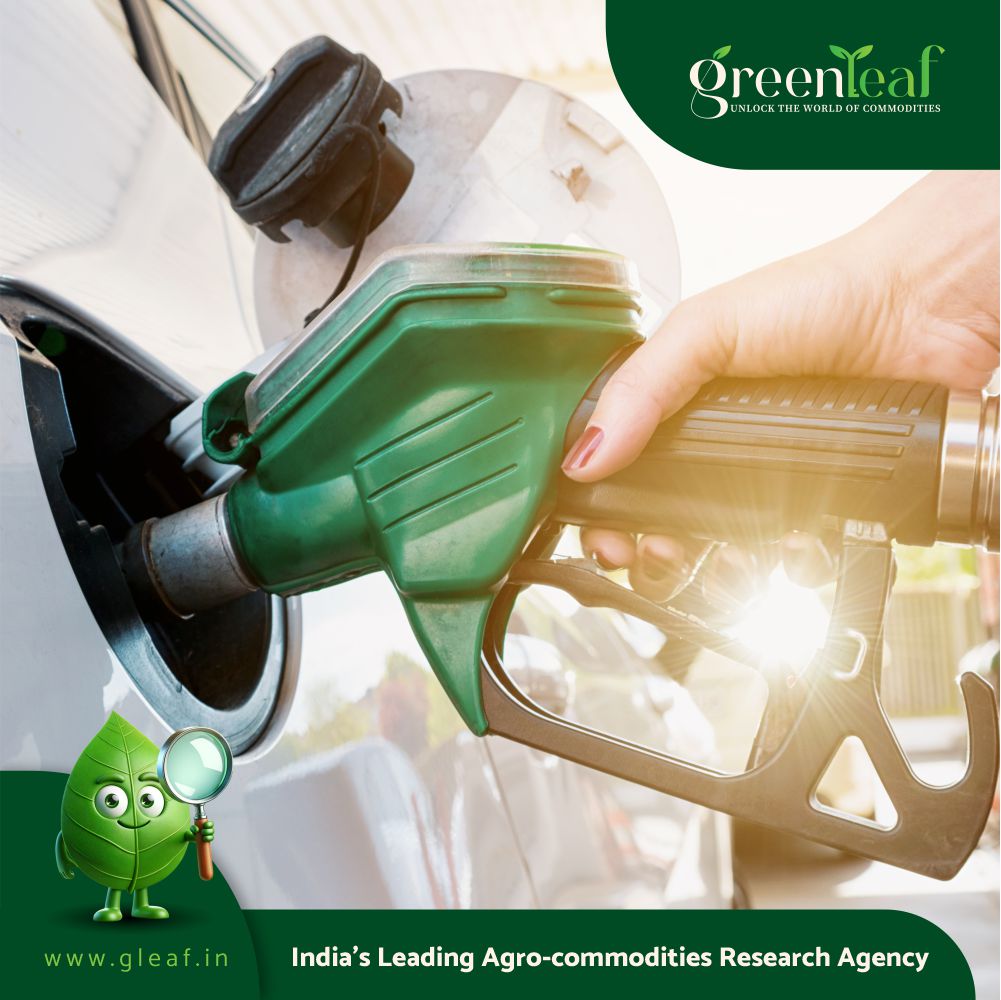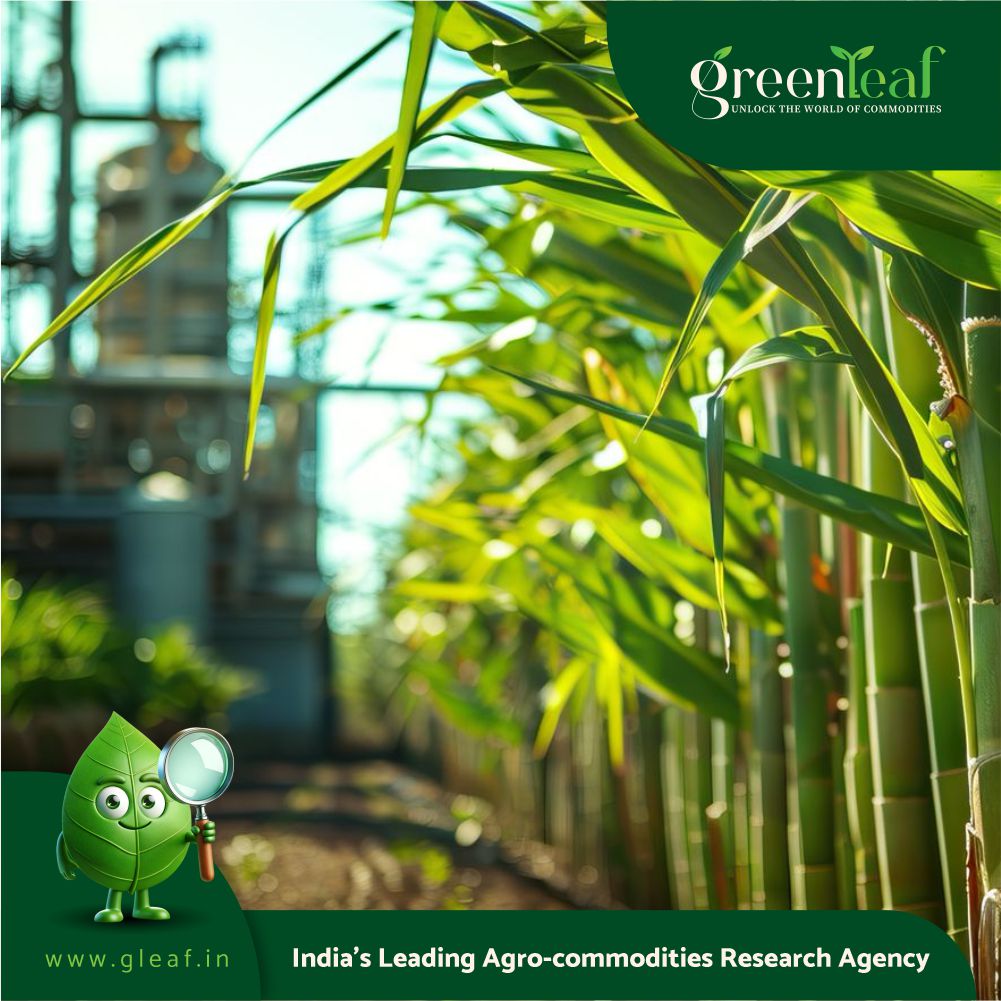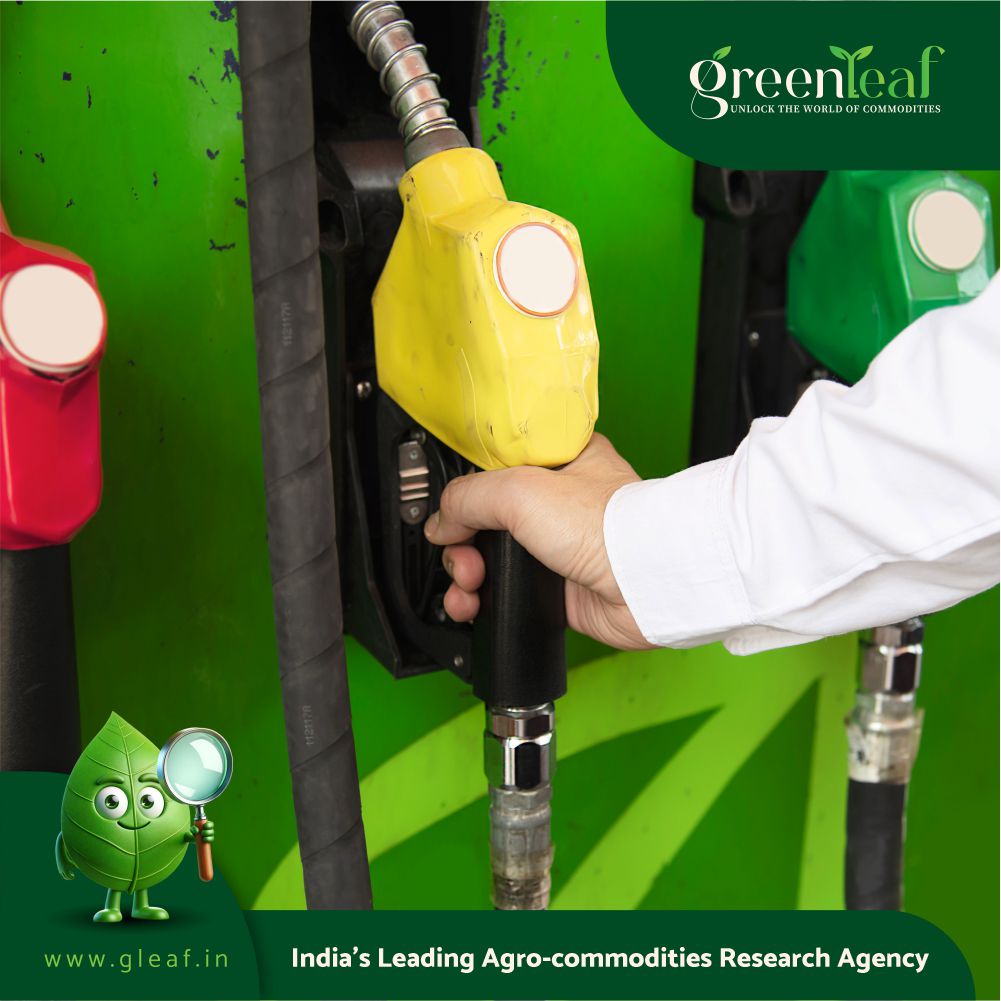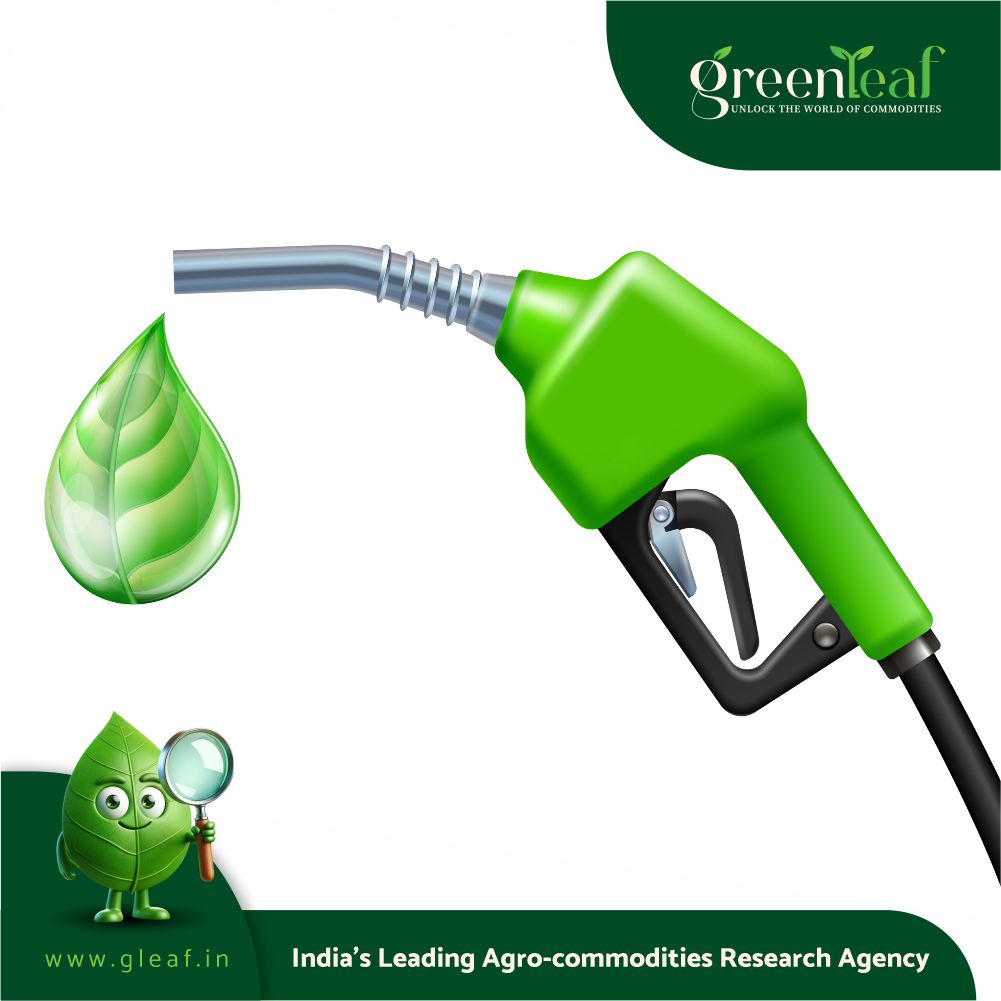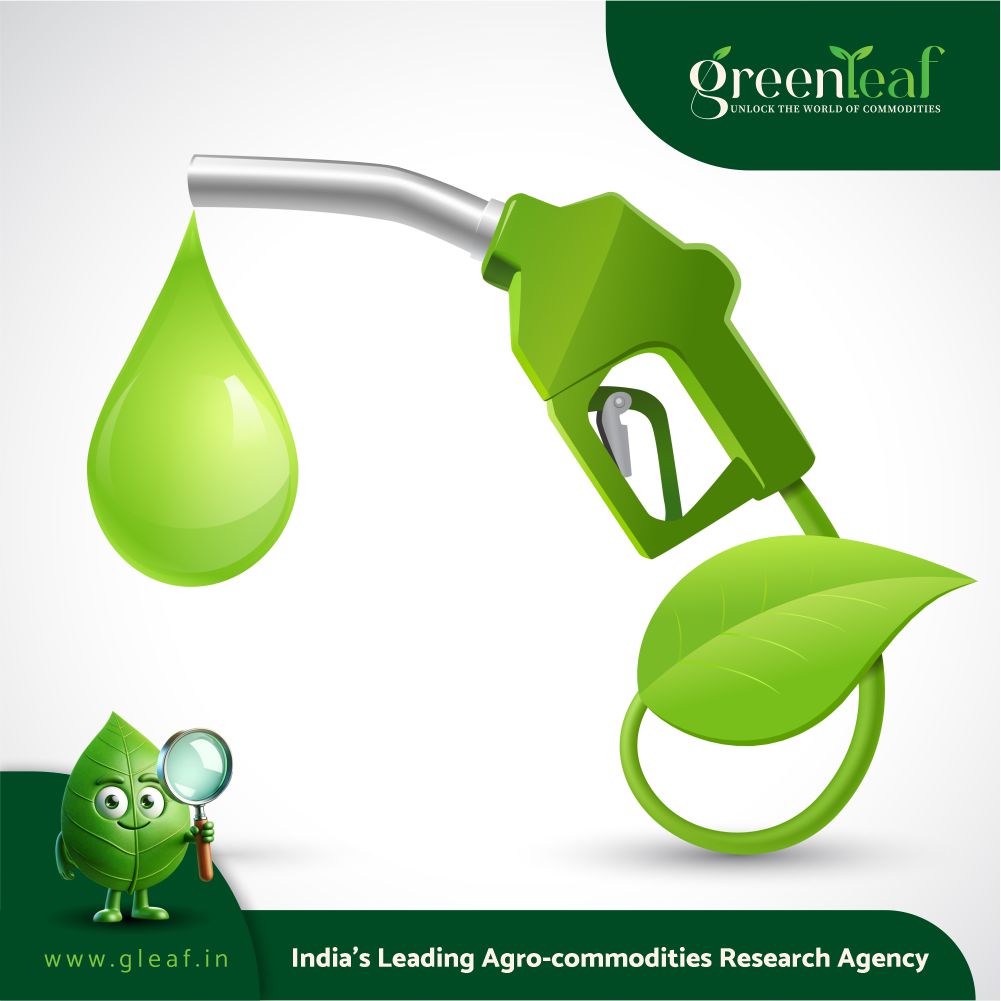The Indian Sugar & Bio-Energy Manufacturers Association (ISMA) and the Indian Federation of Green Energy (IFGE) have jointly urged the government to announce a National Ethanol Mobility Roadmap—a forward-looking plan that defines India’s ethanol blending trajectory beyond E20. Alongside this, they have sought GST rationalisation for Flex-Fuel Vehicles (FFVs) and Smart Hybrid Vehicles, and consumer incentives on par with those under the FAME scheme for EVs. This collective call aims to sustain the momentum of India’s ethanol revolution and extend the benefits of clean, domestic fuel to both consumers and industry stakeholders.
India’s Ethanol Journey: A Global Success Story
India’s remarkable achievement of E20 ethanol blending—five years ahead of schedule—has drawn global recognition. The milestone highlights the country’s leadership in sustainable mobility and energy security. This success stems from a strong policy push by the government and seamless coordination between the sugar, bioenergy, and automotive sectors. Together, they have positioned India among the leading global examples of sustainable fuel transition.
The Sugar Industry: Backbone of the Ethanol Revolution
At the core of this achievement lies the Indian sugar industry. It has invested nearly ₹40,000 crore to create an ethanol production capacity exceeding 900 crore litres per annum. These investments have:
*Boosted farmer incomes through assured demand for sugarcane
*Enabled faster clearance of cane arrears and improved mill cash flows
*Created lakhs of rural jobs
*Encouraged research in high-yield, sustainable feedstocks
Policy Continuity Key to Sustaining Growth
Deepak Ballani, Director General of ISMA, emphasised that India’s sugar sector has fulfilled its ethanol blending commitments ahead of schedule. He warned, however, that progress could stall without policy continuity.
“With the ethanol industry offering 1,776 crore litres against OMCs’ requirement of 1,050 crore litres, the sector is fully prepared to support 27% blending. However, without a defined roadmap beyond E20, capacities could remain underutilised, leading to idle investments and slower innovation,” he noted. Ballani underscored the need for a phased, time-bound roadmap that outlines blending milestones and vehicle adaptation standards. He also highlighted the importance of diversification into advanced biofuels, including 2G/3G ethanol, Sustainable Aviation Fuel (SAF), and green chemicals.
Price Stability and Investment Protection
The associations also highlighted the absence of an ethanol procurement price revision for B-heavy molasses and juice-based ethanol over the last three years. This stagnation, they warned, has placed financial pressure on producers and could slow the industry’s expansion. A clear policy direction beyond E20 would ensure optimal utilisation of capacity and continued growth in farmer incomes. It would also sustain confidence among investors and mill owners.
IFGE: Ethanol Success Must Evolve into a Green Mobility Revolution
Dr. Pramod Chaudhari, President of IFGE, reinforced the need for a National Ethanol Mobility Roadmap 2030 that sets clear post-E20 targets. “India’s ethanol success is a model of industry-government collaboration. To sustain this, we must define a roadmap with specific goals, integrate vehicle adaptation norms, and promote next-generation biofuels and green chemicals,” Dr. Chaudhari stated. He emphasised that such a framework will secure ongoing investments, drive R&D in advanced technologies, and cement India’s position as a leader in sustainable bioenergy.
Flex-Fuel and Smart Hybrid Vehicles: Bridging the Transition
Flex-Fuel Vehicles (FFVs) and Smart Hybrids represent crucial stepping stones in India’s shift from conventional internal combustion engines to cleaner mobility solutions. These vehicles can efficiently operate on blends up to E100, significantly cutting vehicular emissions and petroleum dependence.
However, the current GST rate of 43% on FFVs and Smart Hybrids remains a major deterrent compared to the 5% GST on EVs. ISMA and IFGE jointly urge the government to rationalise taxation and extend incentives to promote widespread adoption.
With supportive policies, the shift to ethanol-compatible vehicles could:
*Reduce India’s annual oil import bill by ₹50,000–₹75,000 crore
*Strengthen energy independence under the Atmanirbhar Bharat vision
*Accelerate progress toward India’s Net Zero 2070 commitment
A Call for Continued Collaboration
Reaffirming their commitment, ISMA and IFGE reiterated that the sugar and bioenergy sectors remain central. It empowers farmers and driving India’s clean energy transition. As per the press release, they stressed that policy stability and fiscal support are crucial to sustaining momentum. This will safeguard farmer livelihoods, promote industrial growth, and secure a clean, self-reliant transport future for India.

